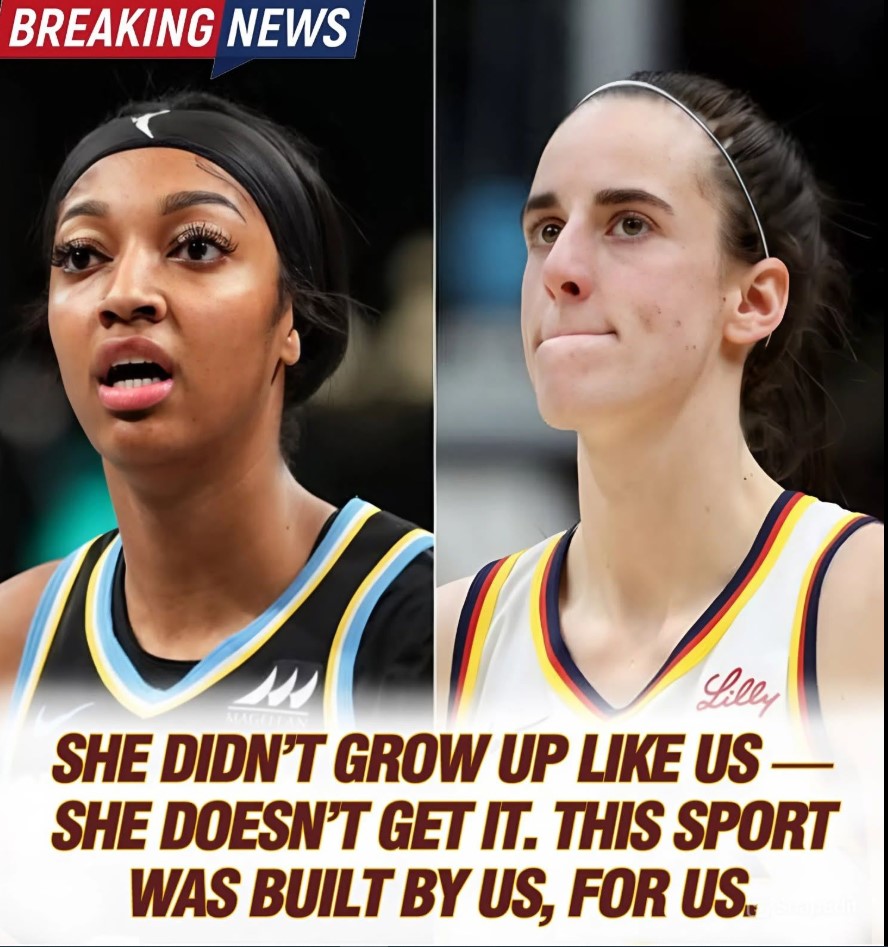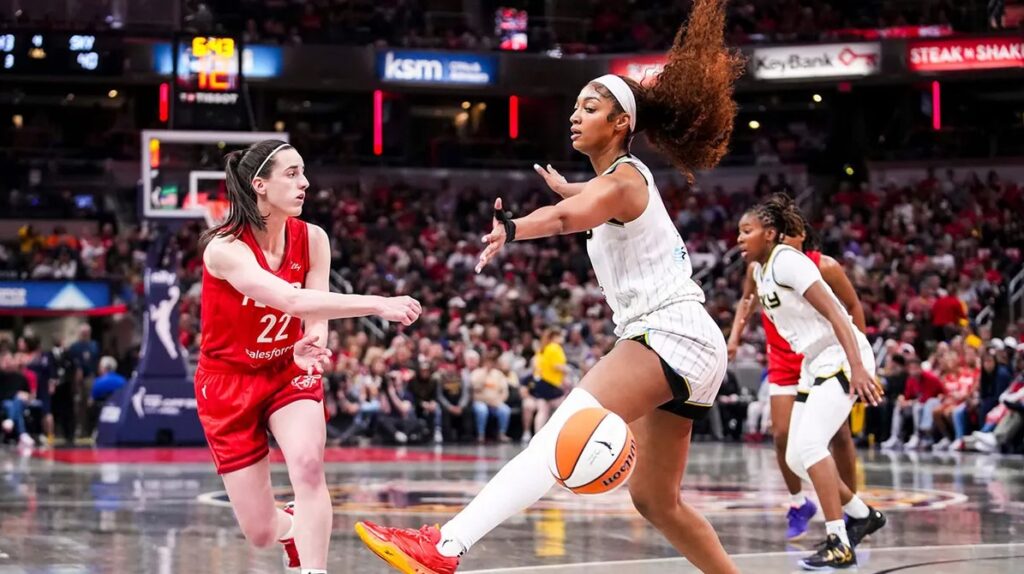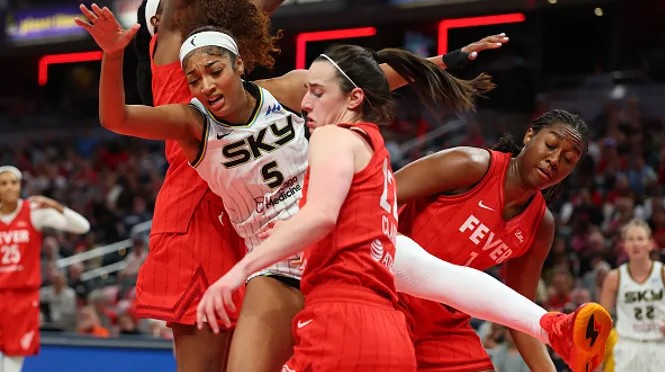Angel Reese Faces Backlash After Allegedly Questioning Caitlin Clark’s Place in Black Culture
The Women’s National Basketball Association has once again found itself at the center of a heated controversy involving two of its most prominent rookie stars, Angel Reese and Caitlin Clark, after allegations surfaced that Reese made comments questioning Clark’s connection to black culture within the league. The Chicago Sky forward, who has been one of the most vocal and dynamic personalities in the WNBA since entering the league, allegedly made remarks that have sparked intense debate across social media platforms and among basketball commentators nationwide.

According to multiple sources within the basketball community, Reese’s comments were made during what appeared to be a casual conversation that was later shared on social media, though the exact context and platform remain unclear as the original posts have since been deleted or made private. The alleged statement reportedly questioned whether Clark, who is white, truly understands or belongs within the cultural dynamics that have traditionally defined women’s professional basketball, particularly regarding the league’s predominantly African American player base and its deep roots in black communities across the United States.
The controversy has reignited long-standing discussions about race, representation, and cultural authenticity in professional sports, with many observers noting that the WNBA has historically served as a platform for social justice advocacy and cultural expression within the African American community. Clark, the Indiana Fever guard who broke numerous NCAA scoring records during her college career at the University of Iowa, has been widely credited with bringing unprecedented mainstream attention to women’s basketball, though her meteoric rise has also generated complex conversations about privilege, media coverage, and the intersection of race and athletic achievement.

Social media erupted almost immediately after the alleged comments began circulating, with fans, analysts, and former players weighing in on both sides of the increasingly polarized debate, some defending Reese’s right to speak authentically about her experiences while others condemned what they perceived as divisive rhetoric that undermines the unity and progress of women’s professional basketball. The backlash against Reese has been particularly intense on platforms like Twitter and Instagram, where hashtags both supporting and criticizing the LSU product have trended for multiple consecutive days, demonstrating the passionate investment that fans have in this ongoing narrative.
Several prominent sports commentators and former WNBA players have attempted to provide context for the controversy, emphasizing that both athletes have faced unique challenges and scrutiny since entering the professional ranks, with Clark dealing with the pressure of enormous expectations and media attention while Reese has navigated criticism about her playing style and public persona. The complexity of their relationship has been a constant source of fascination for basketball fans, particularly given their memorable college basketball encounters, including the 2023 NCAA Championship game where Reese’s LSU Tigers defeated Clark’s Iowa Hawkeyes in a contest that became one of the most-watched women’s college basketball games in history.

Industry experts have pointed out that the current controversy reflects broader tensions within women’s sports regarding how success, recognition, and cultural ownership are distributed and discussed, particularly as the WNBA continues to grow in popularity and attract more diverse audiences than ever before in its history. The league, which has long prided itself on being a progressive force in professional sports, now faces the challenge of addressing these sensitive issues while maintaining the unity and focus necessary for continued growth and success in an increasingly competitive entertainment landscape.
Neither Reese nor Clark has issued official statements addressing the alleged comments directly, though both players have continued to post on their respective social media accounts, sharing content related to their training, upcoming games, and various endorsement opportunities without directly acknowledging the swirling controversy. The WNBA front office has also remained relatively silent on the matter, likely hoping that the situation will resolve itself naturally as the season progresses and fans shift their attention back to on-court performances rather than off-court drama and speculation.
The timing of this controversy is particularly significant given that both players are currently in the midst of what many consider historic rookie seasons, with Clark setting multiple records for assists and three-point shooting while Reese has dominated the rebounding categories and established herself as one of the league’s most formidable interior presences. Their individual successes have contributed to increased television ratings, ticket sales, and overall engagement with the WNBA, making the potential damage from this controversy even more concerning for league officials and team executives who have worked tirelessly to capitalize on the current momentum.
As the story continues to develop, basketball fans and media observers will likely scrutinize every public appearance, interview, and social media post from both players, searching for additional clues about their true feelings regarding this controversy and their relationship with each other. The resolution of this situation may ultimately serve as a defining moment for how the WNBA handles complex issues of race, culture, and player expression in an era of unprecedented growth and attention for women’s professional basketball.
The long-term implications of this controversy remain unclear, but it has undoubtedly highlighted the ongoing challenges that professional sports leagues face when navigating issues of identity, representation, and cultural authenticity in an increasingly diverse and socially conscious sporting landscape that demands both entertainment value and meaningful social dialogue.